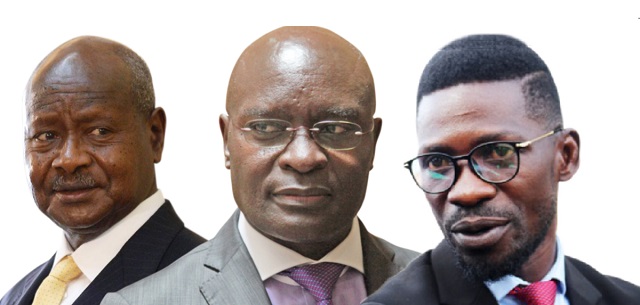
Here is why the 2021 elections might not happen
Kampala, Uganda | RONALD MUSOKE | Simon Byabakama, the head of the Electoral Commission (EC) has been fielding a barrage of questions ever since he announced a revised roadmap for the 2021 general elections on June 16. Now, he might end up being sued, if he persists with his so-called “scientific elections”, according to some unhappy players.
Byabakama must organise elections to fill 1,539,861 positions in 141 districts, 80 municipalities, 200 counties, 2000 sub-counties, 9500 parishes and 65200 villages. But the raging COVID-19 pandemic appears to have scuttled his earlier plans, eaten into his time, and pushed him to devise unusual plans.
In his new roadmap, Byabakama, who is supervising his first polls since he was appointed by President Yoweri Museveni in 2016, set June 22-July 21 as the period for Uganda’s political parties to identify flag bearers. But just weeks to the end of that period, no party has listed its flag bearers. Instead all attention seems to be on the bickering that Byabakama’s claim to be organizing a so-called “scientific election” has caused.
Byabakama says under the “scientific election,” critical electoral activities such as campaign rallies will be conducted on digital and other communication media platforms. He says the EC took the decision because the COVID-19 pandemic has imposed restriction on social gathering and ruled out traditional campaign rallies.
But opposition parties say Byabakama’s proposals “are unrealistic and cannot work in Uganda.” They are also unhappy that the EC did not consult them.
Holding polls is dangerous
Interestingly, the new roadmap came a few weeks after the EC boss meeting President Yoweri Museveni who intends to run for a sixth consecutive election.
Museveni had earlier said in an interview with a local television station, NBS that “It would be dangerous and even madness to conduct the election if the coronavirus is not contained by the end of July.”
“If the virus can stop by June or July, we can have the elections,” he said.
“To have elections when the virus is still there will be madness. Countries like Iran went on with the elections when the virus was still around and it caused a lot of problems. It is very dangerous,” Museveni said.
But Robert Ssentamu Kyagulanyi, the MP for Kyadondo East who says he will be challenging President Museveni in the forthcoming presidential election scheduled for next February says the EC is using the COVID-19 pandemic as “an excuse to ban public rallies and other aspects of an election as we know them.”
“No Ugandan should be fooled into believing that Museveni is doing this for the safety of Ugandans,” Kyagulanyi said in a June 22 statement, “There was no coronavirus when our consultations were blocked. There was no coronavirus when Museveni personally ordered the blocking of our music shows.”
The Forum for Democratic Change (FDC), Uganda’s biggest opposition political party also rejected the EC’s digital campaign proposal. Ibrahim Ssemujju Nganda, the FDC’s spokesperson said the EC’s proposal is “intended to ban freedom of assembly.” Ssemujju says Byabakama’s planned election offends constitutional democracy.
“The only election provided for in the Constitution is one in which citizens actively participate. COVID-19 or no COVID-19, the standards remain the same,” he said, “For an election to be an election under the Constitution, it must be free and fair in which citizens actively participate.”
“These elections are not elections of the Electoral Commission or candidates only; they are Uganda’s elections. At every turn, Justice Simon Byabakama has handled elections as a private matter.”
Crispin Kaheru, the former coordinator of the Citizens Coalition for Electoral Democracy in Uganda, a consortium of civil society organizations that monitor elections in the country, says Byabakama’s new roadmap has several complications. The electoral preparations are happening in an environment of restrictions.
Political players cannot move, they cannot assemble—because of COVID-19-motivated control and yet, elections are about freedom of movement and assembly. Preparations are further jeopardized by the timelines, Kaheru says.
 The Independent Uganda: You get the Truth we Pay the Price
The Independent Uganda: You get the Truth we Pay the Price



Election should take place